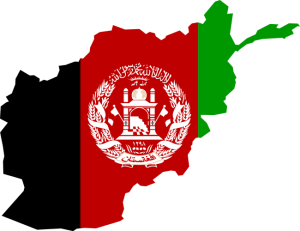By Sarah-Claire Jordan
 Though once a reasonably peaceful country, in the past 20 years or so it has been ravaged by civil war and occupation by other countries. The media coverage in the U.S. tends to paint it as a country full of Muslim extremists who are more or less grouped in with the rest of the countries in the Middle East where conflicts are going on.
Though once a reasonably peaceful country, in the past 20 years or so it has been ravaged by civil war and occupation by other countries. The media coverage in the U.S. tends to paint it as a country full of Muslim extremists who are more or less grouped in with the rest of the countries in the Middle East where conflicts are going on.
With this Islamophobia comes general stereotyping, that everyone who lives in the Middle East is Muslim and hates the U.S. and speaks Arabic. This couldn’t be further from the truth, however, as there are a few Middle Eastern countries that do not mix religion and politics. There are also Christians and people who practice other religions in these countries, and they do not all speak Arabic.
Afghanistan is a prime example of a Middle Eastern country where Arabic is not the predominant language. In fact, it is barely spoken there. Here are the four most common languages spoken in Afghanistan, ordered from most common to least common:
1. Pashto
Pashto is the language of the Pashtun ethnic group found in South-Central Asia. It is categorized as an Eastern Iranian language with many different dialects. Between about 45-60% of the people of Afghanistan speak Pashto. It is one of the official languages of the country as well. Pashto is the second most common language in Pakistan as well. The Pashtun diaspora created pockets of Pashto-speaking groups in different Middle Eastern countries as well as in the U.S., Europe, and other countries.
2. Dari
Actually a variety of Persian that is spoken in Afghanistan, Dari is sometimes called Dari Persian or Afghan Persian. It is the other official language of Afghanistan, along with Pashto. About 25-50% of the country’s population speak Dari as their native language. Dari also serves as a lingua franca throughout the country and is mutually intelligible with Iranian Persian. Many other Asian languages like Bengali, Punjabi, and Hindustani were all influenced by Dari during the time of the Persocentric Mughal Empire. Dari was the official, administrative, and cultural language of the empire and was used as a lingua franca throughout the Indian subcontinent for a long time even after the collapse of the empire.
3. Uzbek
The official language of Uzbekistan, Uzbek is a Turkic language native to Uzbekistan, Turkmenistan, Afghanistan, Kazakhstan, China, Kyrgyzstan, Tajikistan, and Russia. Because of the other languages spoken where it is a native language, Uzbek has been influenced by Russian, Persian, and Arabic. About 9-10% of the population of Afghanistan speaks Uzbek as their native language. Uzbek uses three different writing systems: Latin, Cyrillic, and Arabic. Cyrillic is the most widespread even though Latin is the official writing system, and often two or three writing systems will be used in the same publication.
4. Turkmen
Turkmen is also a Turkic language and is the official language of Turkmenistan. Only about 3% of the population of Afghanistan speaks Turkmen, most of whom live in the northwestern region of the country. It is one of a group of languages that have vowel harmony and is agglutinative, meaning new words can be formed by adding on suffixes to existing words.
For an overview of our translation expertise, visit our audio and video translation service page.



